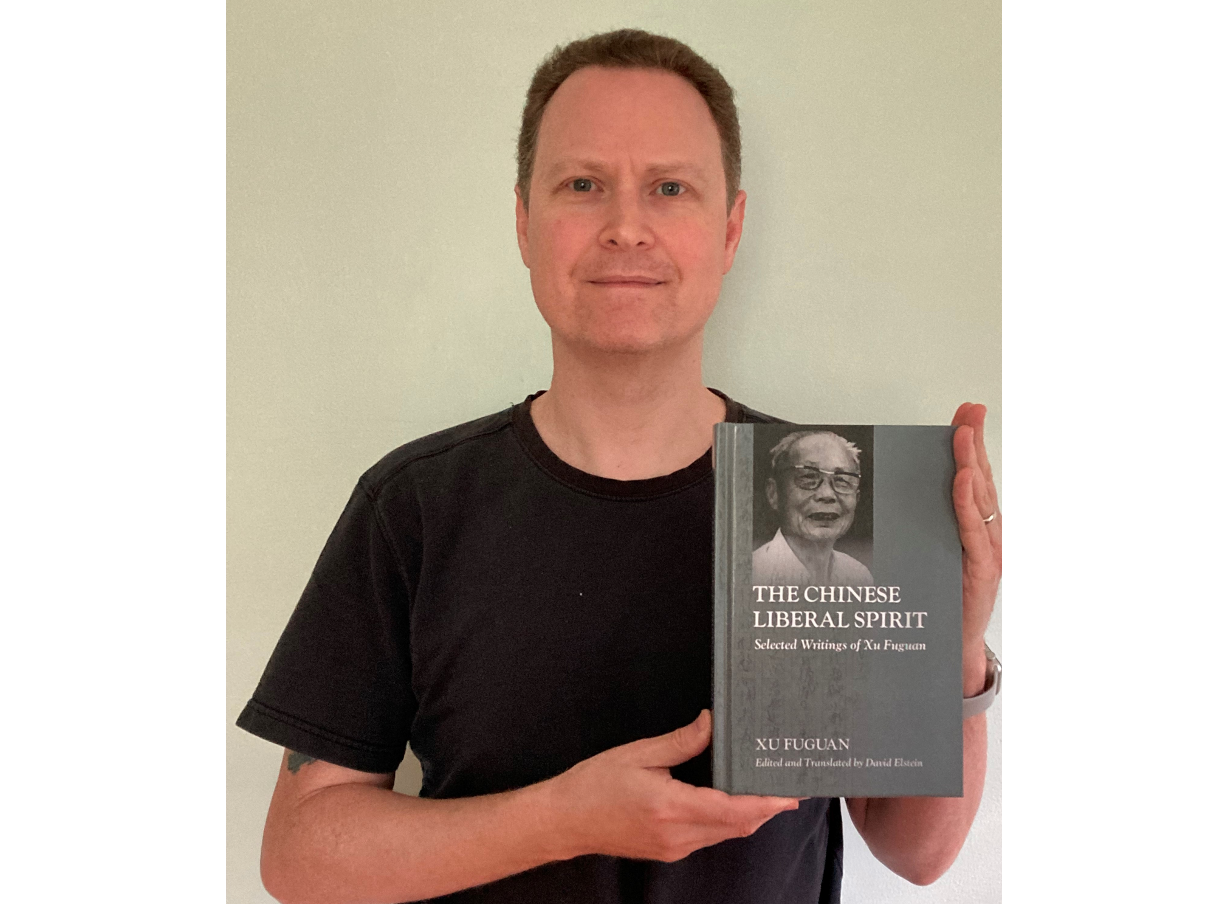David Elstein is Professor of Philosophy and Asian Studies at the State University of New York, New Paltz. Elstein specializes in Chinese philosophy and although his initial training and research was in pre-Qin thought, his more recent work has focused on contemporary Chinese philosophy, particularly Confucian political thought. His past work includes the Dao Companion to Contemporary Confucian Philosophy and Democracy in Contemporary Confucian Philosophy. His most recent work is a translation and edited collection of selected writings from Xu Fuguan, titled The Chinese Liberal Spirit.
Xu Fuguan (1903–1982) is considered one of the most important Confucian scholars of the twentieth century. Xu believed strongly that democracy was the way forward for the Chinese nation. Making his ethical and political thought accessible to English-speaking readers for the first time, The Chinese Liberal Spirit challenges the claim that a Confucian government should be a meritocracy, rather than a democracy.
Why did you feel the need to put together this work?
Most simply, because there is nothing like it available. There are not many translations of modern Chinese philosophical works at all, and no English translations of any work by Xu Fuguan before. He is very well known among Chinese scholars, but without translation his work cannot reach a broader audience.
What topics are discussed in the work, and why are they important to discuss?
I focused on Xu’s political thought and how he defends democracy as the best way forward for Chinese culture. Mainland China is of course not democratic now, and most work on contemporary Confucian political philosophy in English (I’m thinking of Daniel Bell and Bai Tongdong especially) is anti-democratic to one degree or another. I believe it’s important for people to know that there have been Chinese voices arguing for democracy for a long time that didn’t see it as antithetical to their traditions.
Why have past scholars believed that democracy was antithetical to Confucian society?
The political model one finds in classical Confucian texts is meritocracy and no Confucian society was democratic until after WWII. Confucian thinkers urged a hereditary ruler to appoint wise and virtuous officials to handle the actual business of governing. They also exhibited a great deal of suspicion about the abilities of the common people to understand important political matters, believing political decisions are better made by experts. The people can be consulted but should not have decision-making power. Confucian meritocrats today advocate some version of this model.
How does Xu argue that Confucian societies can and should embrace democracy?
Xu’s argument proceeds along two lines. First, he concedes that historically Confucians did not embrace democracy, but he says this was simply due to facing the political reality of hereditary rulership which they felt unable to change. It was not a rejection of democracy. Second, he argues that democracy will better realize Confucian ethical and political goals. The ideal was always governing for the people, putting their welfare first. But without democracy, there is no way to check or remove a ruler who doesn’t do this (other than revolution). Democracy is a way to ensure that rulers govern in the people’s interests, not their own. A democratic polity also allows people space to develop the potential for virtue inherent in human nature. What is critical for this is self-consciousness or self-awareness: people must realize the source of virtue within themselves. It cannot come from outside. Governments cannot legislate virtue. While this doesn’t logically entail democracy, he felt, based on his observations of the Communist Party in China and the Nationalist Party in Taiwan, that a non-democratic government will inevitably try to enforce its preferred moral vision.
How is this work relevant to the contemporary world, historical ideas, or everyday life?
I draw two major implications from Xu’s work. First, the argument that Confucian societies can and should embrace democracy, as Japan, Korea, and Taiwan have demonstrated is possible. Second, the argument that democracy needs to have some moral values as its foundation; in short, that there are limits to liberal neutrality. And historically, as someone who fought in the Nationalist army and lived through government repression in Taiwan in the name of opposing communism, he has a unique perspective on the Chinese revolution and the early failures of democracy in China.
What effect do you hope this work will have? How does it contribute to existing literature?
I would like to see more attention to contemporary Chinese philosophy. When people look at Asian philosophy at all, it’s usually the classical era. There’s a lot interesting there, but one wouldn’t stop at ancient Greece when studying European philosophy. Contemporary Chinese philosophers were dealing with a lot of questions brought about by modernization, more social pluralism, huge changes in social institutions, and the like that make them more applicable to contemporary circumstances than two-thousand-year-old philosophers.
How did your past work influence your work on this project?
I first began reading Xu when working on my earlier book, Democracy in Contemporary Confucian Philosophy. I felt he had a lot of interesting views, and was barely known outside East Asia because he never published anything in English. I’d love to see more translations of modern Chinese philosophy, and so thought I should contribute to that.
